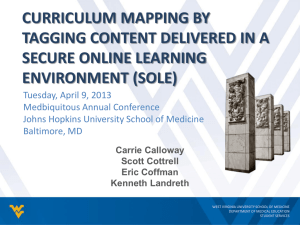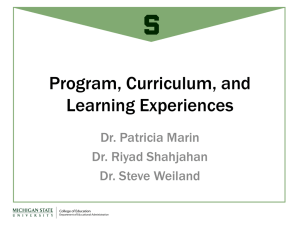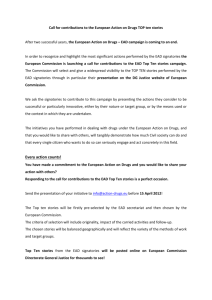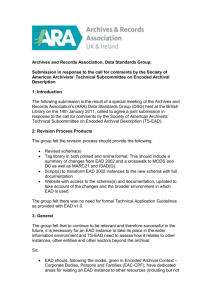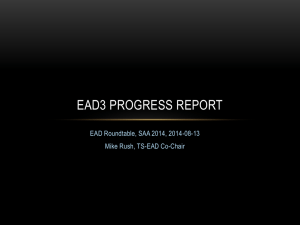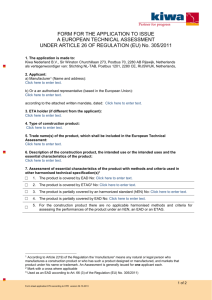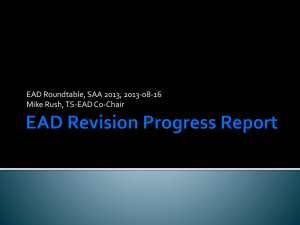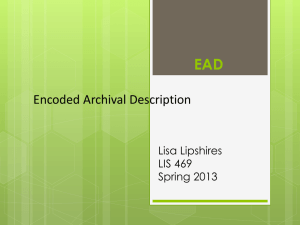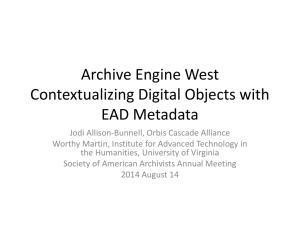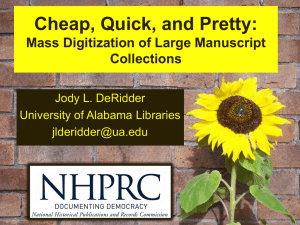EAD Revision: Response to Call for Comments
advertisement
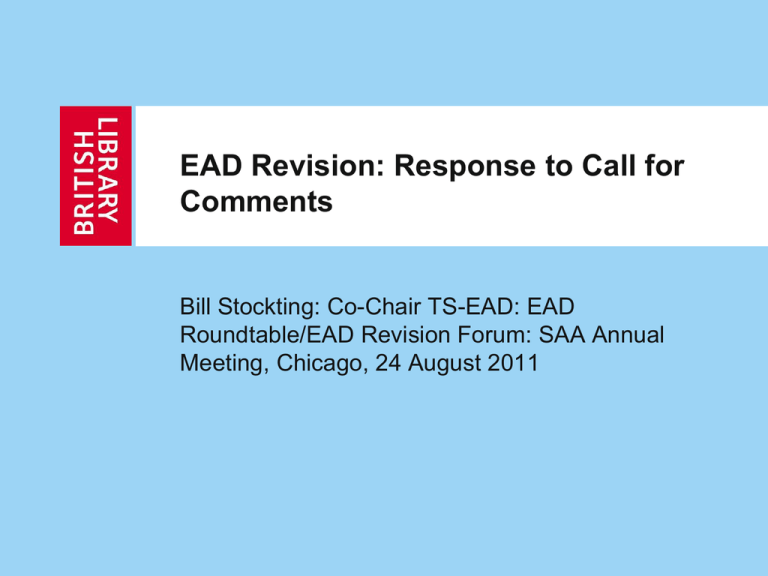
EAD Revision: Response to Call for Comments Bill Stockting: Co-Chair TS-EAD: EAD Roundtable/EAD Revision Forum: SAA Annual Meeting, Chicago, 24 August 2011 Scope Great response to call with comments that: Reflect international nature of EAD: from France, Germany, Netherlands, Spain, Sweden, UK as well as the US Come from both technical and archival point of view 127 comments on the spreadsheet – we’ll do further analysis and de-duplication in advance of working meeting in March and share this as well Range from the very general to the very specific and local Today then a whistle stop tour of main points! Revision Process Calls for: A XML schema alone, no DTD: Consistent with current best practice for XML, e.g. camelCasing Use XML and XLINK libraries, e.g. @xml:lang Updated tag library Migration script(s) : EAD2002 → EADnew Fundamentals #1 EAD should: Be aligned with EAC-CPF in terms of: underlying relationship model element names and semantics – especially <bioghist> but it must remain possible to use EAD alone! Include data from other XML namespaces: EAC-CPF, MARC21, MARCXML, MODS, TEI, KML, HTML Allow rich description of digital representations within <dao> or reference to them, including technical and structural metadata Include or reference user generated data Fundamentals #2 EAD should be: Simpler and have fewer tags! Data rather than text centric: less concerned with the publication of finding aids: fewer formatting tags, especially <head>, <emph> and <table> more database friendly: fewer opportunities for mixed content Specific Areas of Tagging #1 <eadheader> should be: simpler less about publishing a title page and more about description <control> Structure tags: lose numbered <c> and <dsc> tags make <archdesc> a wrapper tag containing <c> descriptions at all levels Specific Areas of Tagging #2 Wrapper tags: role and purpose of <did> and <physdesc>? Related to role of <descgrp> but one call at least to lose it! <*name> tags: Allow optional tagging of parts of names including perhaps subjects and places Allow geo-coding of places Extend the elements that can be qualified by language /script Ensure ability to encode span, uncertain and complex dates as well as normalise them
